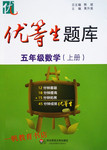��Ŀ����
2���ٶ�Ӣ�������ʦҪ��ͬ��֮�佻�������ģ���������ͬ��д�����¶��ģ������й���10������ÿ��������������������漰һ�����ʵ����ӡ�ɾ�����ģ����ӣ���ȱ�ʴ���һ��©�ַ��ţ��ģ������ڴ˷�������д���üӵĴʣ�
ɾ�����Ѷ���Ĵ���б�ߣ�\��������
�ģ��ڴ��Ĵ��»�һ���ߣ����ڸô�����д���ĺ�Ĵʣ�
ע�⣺1��ÿ���������ľ�����һ�ʣ�
2��ֻ������10�������ߣ��ӵ�11���𣩲��Ʒ֣�
On a snowy winter night��a bus with 45passenger had an accident because the wet road��And all of whom were trapped��������in the bus��What is worse��the bus ran out of gas but it was very cold in it��They could do nothing but waited for help��A man who lived nearby saw what had been happened��He and some villagers succeeded in open the door and helped all of them out of the bus��He took them to his own home and offered food and water and even some warm clothes to the children��They spent two days in their home and finally help came��All of them were thankfully for the help��
���� ���Ľ�������һ���´�ѩ�����ϣ�һ������45���˿͵Ĺ���������·�Ϸ������¹ʣ����Գ˿ͱ����ڳ��������ס��һ���˺���������ɹ�����˱����ij˿ͣ��˿��Ƕ����ǵİ���������м���
��� On a snowy winter night��a bus with 45passenger had an accident because��the wet road��And all of whom were trapped��������in the bus��Whatis worse��the bus ran out of gas but it was very cold in it��They could do nothing but waited for help��A man who lived nearby saw what had been happened��He and some villagers succeeded in open the door and helped all of them out of the bus��He took them to his own home and offered food and water and even some warm clothes to the children��They spent two days in their home and finally help came��All of them were thankfully for the help��
��⣺
1��passenger��Ϊ passengers���������ʣ�passengerΪ�������ʣ�ǰ��45���Σ����ø�����ʽ��
2��because �����of�������ʣ�because����ԭ��״��Ӿ䣬because of��������ʻ������Զ����ʾԭ�˴� the wet road�������Զ������because�����of��
3��whom��Ϊthem�������˳ƴ��ʣ��˴����˳ƴ���themָ��45 passengers�����of�ı��
4��is ��Ϊwas�����鶯�ʵ�ʱ̬���˴�������ȥ��״̬������һ���ȥʱ��
5��but��Ϊand���������ʣ���Ͼ���"�������Ǵ��ؼҲ��������ṩʳ���ˮ"����������֮��Ϊ���й�ϵ������and���ӣ�
6��waited��Ϊwait������̶����䣬could do nothing but do sth���ǹ̶��÷�����Ϊ"ֻ����ij��"��
7��ȥ��been�����鶯�ʵ���̬��happenΪ�����ﶯ�ʣ��������ڱ�����̬���ʰ�been ȥ����
6��open ��Ϊopening�������ν�ﶯ�ʣ����in����Ҫ�����ʵĶ�������ʽ��
8��their��Ϊhis�������������ʣ���������"He took them to his home"��֪�������Ǹ����ӵļң������ݴ�����������his��
9��thankfully ��Ϊ thankful���������ݴʣ��˴������ݴ���ʽ��ϵ����were�ı��
���� ������ն��Ĵ��⣬Ū����ĵĻ���ʱ̬����������֮��Ľṹ��ϵ������������ᄈ���ôʻ㣬��Ȼ���֪ʶ�ҳ����еĴ�������

 �ŵ������ϵ�д�
�ŵ������ϵ�д�